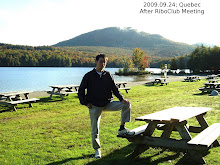Once in a while, I send emails to authors of papers I am interested in, sometimes simply to ask for PDF reprints, mostly to request for clarifications of points I cannot understand fully. Of course, the responses I have received vary significantly: some authors are responsive and are able to answer my questions concretely; while others respond less professionally; in no small percentage, I get no feedback at all. Whatever the case, though, sending querying emails is convenient, and the responses I get (even no response at all) are informative. Naturally, I would take more seriously the papers whose authors are responsive. On the other hand, in my memory, I have never ignored a reader's question of my publications.
Seeking clarification on a scientific software from author(s) or maintainer(s) is even more important due to inherent subtleties of (undocumented) details, as is common in (bio)informatics. In supporting 3DNA over the years, I've experienced quite a few cases where authors of some articles are misinformed in making judgment about 3DNA's functionality. In one case, I read in a paper claiming 3DNA cannot handle Hoogsteen base-pairs while Curves can. A few email exchanges with the corresponding author (who was very responsive and professional) turned out that an internally modified version of Curves was used. More recently, I found a paper claiming that find_pair from 3DNA failed to identify some base pairs in DNA-protein complexes where a new method succeeded. I asked for the missing list, and immediately noticed that simply relaxing some criteria recovered virtually all of the pairs. Thus, to make a convincing comparison of scientific software, it is crucial to check with the original authors to avoid misunderstandings. Serious scientific software developers and maintainers always welcome users' feedback. Why not ask for clarifications if one really wants to make a (strong) point in comparison? Of course, it is another story for unsupported software.
The Internet age has provided unprecedented convenience for scientific communication. It would be a pity not to take full advantage of it. One simple and important thing to do is: whenever in doubt, ask for clarification from corresponding author of a publication or maintainer of a software.
Subscribe to:
Post Comments (Atom)

No comments:
Post a Comment
You are welcome to make a comment. Just remember to be specific and follow common-sense etiquette.